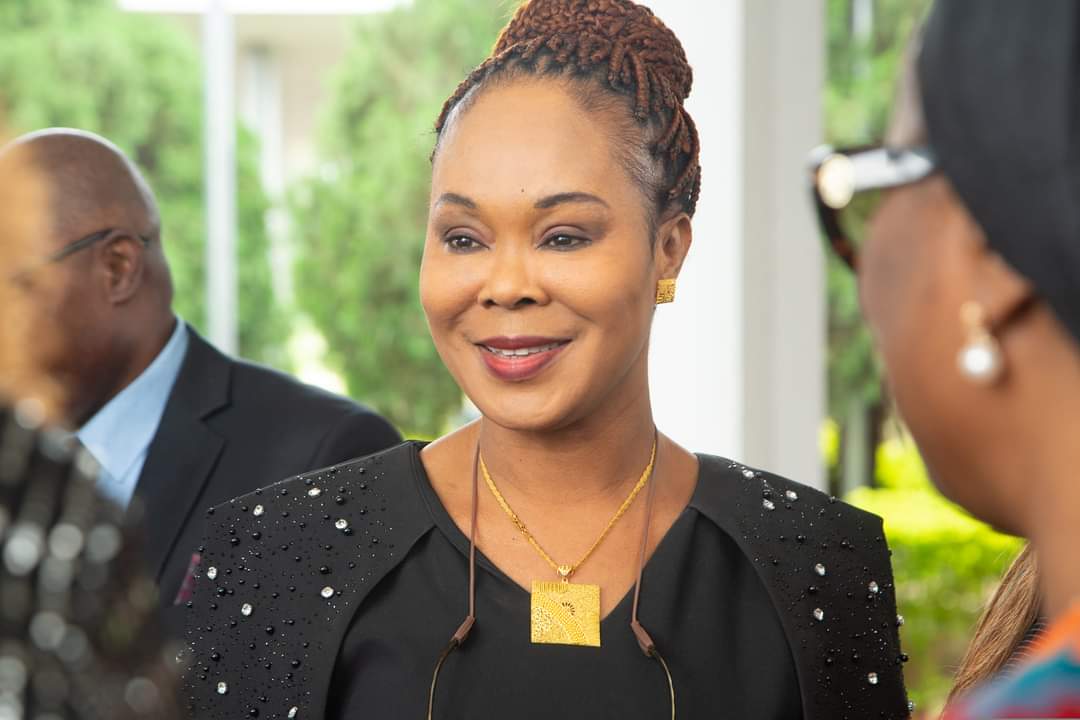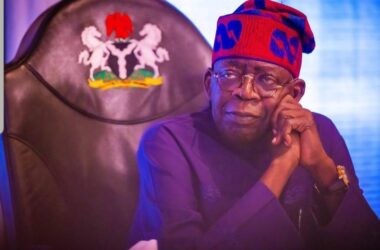Economic empowerment is a multi-dimensional phenomenon. It is even more so when it is associated with the profile and fortunes of the female person.
Obviously, the road to full economic empowerment for the majority of our people and both genders, is a long, tortuous and ever-shifting one, with many obstacles along the way. Some of these obstacles are imposed by culture, custom and tradition, while others are imposed by economics and the theory of necessity. In the case of women, its course is affected by the ways in which issues of wealth distribution and poverty, and especially of gender, intersect with those of race, class, and even sexuality. But the inescapable truth is that – thanks to the work being done by relevant stakeholders in both the public and private sectors, and by NGOs and inter-governmental agencies – society is heading in the right direction; the intrinsic value of human life is appreciated, and the 21st century woman is no longer a mere appendage to the man (or men) in her life. Her concerns are no less valid, and her potential contributions to society no less impactful.
On the public side, governments at all levels in Nigeria have shown their commitment for the protection and empowerment of the vulnerable groups in our society – not least with the establishment of relevant, cabinet-rank ministries. At the national level, it is the Federal Ministry of Women’s Affairs and Social Development, an establishment saddled with the task of promoting the welfare of our people, with emphasis on women and enhancement of the quality of the society as a whole, through the following actions:
– stimulating action to promote the civic, political, social and economic participation of women;
– coordinating and monitoring women’s programmes;
– providing technical and financial support to female-run and female-oriented NGOs;
– promoting literacy an lth programs for women.
In addition to the above, the Ministry is committed to make the following interventions on behalf of its core constituencies:
1) Eliminate Stigma and Discrimination on the Basis of Gender
2) Ensure Inclusive Education
3) Enhance Economic Empowerment
4) Harness Technology and Innovation
5) Facilitate Data Disaggregation
6) Support Women and Girls with Disabilities
But, beyond the mandate and interventions of the Ministry of Women’s Affairs and Social Development, what is empowerment? More specifically, what is women’s empowerment? This may be defined in several ways, and this includes the willingness and readiness on the part of the society to accept various viewpoints on issues – including those of women, making an effort to seek those viewpoints, as well as intentionally raising the status of women through education, awareness, literacy, and training. Women’s empowerment, in particular, entails the deliberate act of equipping and allowing women to make life-determining decisions on the issues that affect them, and to have more freedom to pursue desired goals.
In 2000, the United Nations (UN) came out with a set of goals called the Sustainable Development Goals (SDGs) to help make the world a better place. Of the 17 SDGs, the fourth goal works to allow access to education for all people – including those of the female gender. In response to the SDGs, tremendous effort has been made by UN member-countries to achieve higher female enrollment in schools to better their education. Also, Goal No. 5 focuses on empowering women and girls to achieve gender equality through equal access to various types of opportunities (health care, education, work, etc.).
In Nigeria, laudable efforts have been made, especially in the last few years, to put in place the necessary mechanisms required for the elimination of obstacles to women’s empowerment – such as gender-based discrimination, in a bid to ensure parity and preserve the dignity of the female person. The National Gender Policy, for example, is particularly targeted at the gender inequality that is still endemic in Nigeria – with its history of gender-blind and gender-insensitive development policies.
Thankfully, there is, today, a greater consensus around one of the key contents of the MDGs, namely, that if women are granted their pride of place in society, developmental efforts to combat poverty, hunger, disease and stimulating sustainable development will have a greater likelihood of success. Until equal numbers of girls and boys are in school at all levels of education, the MDGs also add, it will be IMPOSSIBLE to build the knowledge necessary to eradicate poverty and hunger, combat disease and ensure environmental sustainability.
How well has Nigeria done in attaining at least the minimum level of economic empowerment (especially for women) and gender parity? The answer depends on whom you ask, and the benchmarks they set.
Suffice it to say, however, that the most important benchmark has to be in the area of EDUCATION AND LITERACY – ie school enrollment at all levels of education. Needless to say, knowledge is critical for development because every thing we do depends on it. Ordinarily, to live, we must transform the resources we have into the products we need or desire – and the required process takes knowledge. Not only that, we must also use the resources in ways that generate higher returns on our efforts and investments. That’s why equal access to education by men and women is inevitable, if development is to be achieved on a sustainable basis.
A second benchmark would be in respect of POLITICAL PARTICIPATION, and the ability of women in particular to make a significant contribution and partake in decision-making and policy-formulation and implementation regarding the issues that affect them. As in many African countries, Nigerian women have a vastly subordinate role in public life to their male counterparts. There are about 19 times as many men in executive positions than women, and the policy preoccupations of male-dominated political institutions are, for the most part indifferent (if not altogether hostile) to the interests of women. The 2023 general elections in Nigeria were sadly notable for the near-absence of female candidates for the highest political positions, due to a variety of negative factors. Those statistics are, like it or not, a blow to our quest to deepen the fundamentals of our democratic culture. Is it a surprise, then, that there are TWICE as many women as men living below the poverty line in Nigeria?
A third benchmark would be the power dynamic in the average Nigerian family in DETERMINING FAMILY SIZE. Women are routinely eliminated from the decision-making process of how many children they are going to have and when they are to have them. There are few (if any) population control guides that target men in a bid to reduce the high fertility rate.However, for an effective consensus to work as far as family size – and by extension, population control – is concerned, both men and women must have equal say .
A fourth benchmark would be in the area of access to affordable, accessible and humane HEALTHCARE. The imbalances that exist in Nigeria in this respect are driven by the above-mentioned power dynamics within and beyond the home – including religious strictures and government policies. One direct result of these imbalances is the unfortunately high rate of gender-specific health challenges such as infant and maternal mortality in Nigeria (which is by far the highest of any country on the planet).
A fifth benchmark would be in the area of ENTREPRENEURSHIP – and in particular, the gender-based differentiations that stand in the way of women who desire to start and run a successful business in a sustainable manner. The bitter truth is that there is still a great disparity between a woman’s ability to access credit from a lending institution compared to a man’s (in spite of the advocacy to the contrary). As a result, female business owners typically have fewer employees, and their businesses have a potentially shorter life-span than male-run businesses (thereby reinforcing the disparity even further, and perpetuating a vicious cycle).
A sixth benchmark would be in the area of PROPERTY RIGHTS. All over Africa, there are (largely unwritten) customary norms whose ultimate effect is the subjugation of women – no thanks to the patrilineal system which passes succession and inheritance rights down to male progeny. In many cultures, women are typically not allowed to inherit; and in those communities where they’re allowed to do so, it is under joint tenancy with their brothers. The abuse of women’s property rights typically starts in the home and is reflected in the larger society. It is typically the closest relatives – father, brothers, husband, brothers-in-law – who violate women’s rights, from the time of birth through adolescence to married life and widowhood. Happily, though, in recent years, the rights of Nigerian women to inherit property from their deceased parents have been tested and upheld by various courts of record, including the Supreme Court of Nigeria, which ruled that, in fact, the customary law that prevents a female child from receiving a share of her deceased father’s assets is in violation of Section 42 (1) & (2) of the Nigerian Constitution.
A seventh benchmark in measuring the level of women’s empowerment in Nigeria would be in the area of AGRICULTURE. In this part of the world, this is one sector in which there are at least as many female participants as there are male. According to a recent report, female small-scale farmers make up between 70 and 80% of the country’s agricultural workforce. They are responsible for the majority of domestic food production, processing, marketing, and preservation. And yet, even here, the conversation around gender disparity – in respect to access to economic and productive resources – is pretty much the same as in other sectors. In contrast to their male counterparts, women have limited access to land, credit facilities, training, and advice for farm inputs, technology, and crop insurance, among others. In spite of the fact that about 14% of the land used for farming in Nigeria is owned by female small farm owners, they enjoy little attention (if any) from relevant stakeholders. and the government’s agricultural sector pays them little attention despite their important responsibilities in food production. Today, even on a global scale, only 6% of bilateral financing for agriculture treats gender as a fundamental issue. But if half of small-scale producers benefited from development interventions that focused on empowering women, it would significantly raise the incomes of an additional 58 million people (and increase the resilience of an additional 235 million people) around the world. The Food and Agriculture Organization (FAO), says that increasing women’s empowerment is essential, not just for women’s well-being, but it also has a positive impact on agricultural production, food security, diet and child nutrition.
Happily, the light at the end of the tunnel as far as empowerment in the above-listed areas (as well as on issues that affect the woman and girl-child, such as female genital mutilation; maternal and child mortality; early marriage; gender-based violence and sexual harassment, etc – are concerned, is not as distant as it once seemed. Thanks to the various social investment schemes devised by government under the aegis of the Ministry of Women’s Affairs and Social Development (now led by the Hon Barrister Uju Kennedy Ohanenye) and in partnership with other sister-Ministries, agencies and departments of the FG – the profile and fortunes of the Nigerian person – and the female person in particular – is on upward trajectory.
The success of the Ministry and its partners in this regard is predicated on a new paradigm of economic empowerment – a paradigm which sees empowerment as going beyond the tokenism that has obtained over the years, and is still a reality today – especially among politicians seeking electoral office. Tokenism here refers to the practice of gifting indigent persons with items such as sewing machines and tricycles in the name of economic empowerment – but in reality is a practice is no more than giving a man fish to eat, but never teaching him how to fish. Distributing such items may be charity – even with the best of intentions – but it is certainly NOT economic empowerment.
It is time for all stakeholders – on the public and private sectors – to be more intentional about social investment in general, and economic empowerment in particular, in a manner that helps place everyone’s foot squarely on the ladder of sustainable wealth creation.






